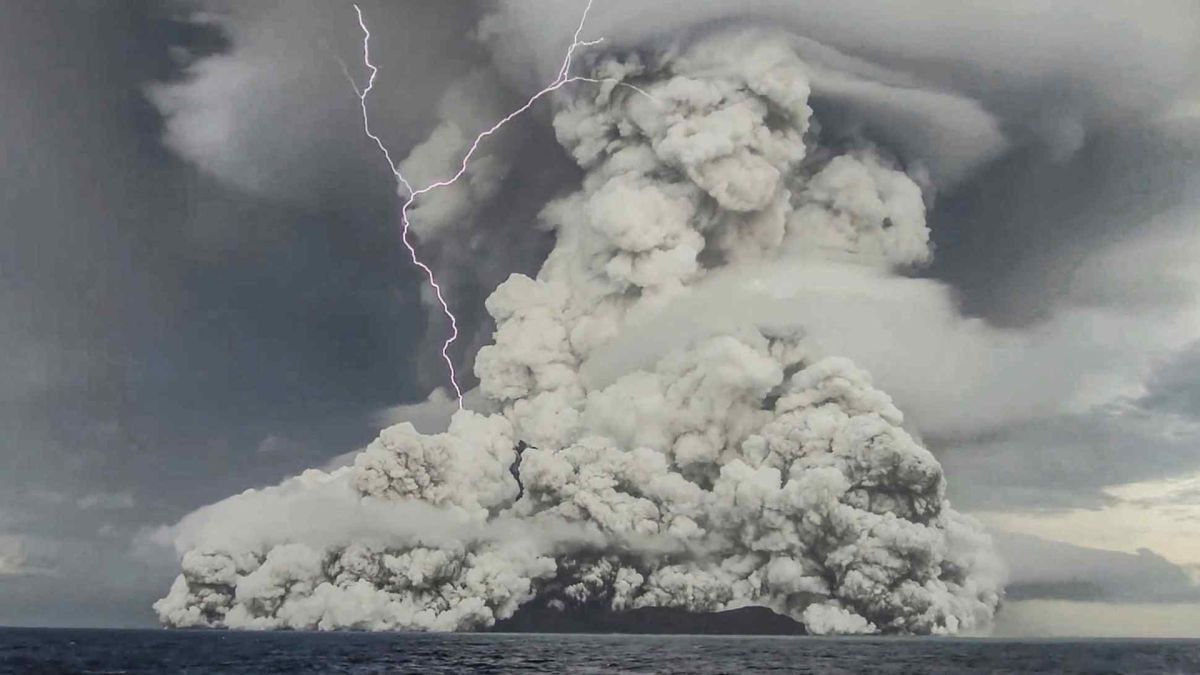
The blast extended for 162 miles (260 kilometers) and sent pillars of ash, steam and gas soaring more than 12 miles (20 km) into the air, according to the National Oceanic and Atmospheric Administration (NOAA (opens in new tab)).
Related: Huge Tonga volcanic eruption spawned record-breaking winds at the edge of space.Particles of rock and ash can also temporarily cool the planet by blocking sunlight, according to the National Science Foundation's University Corporation for Atmospheric Research (opens in new tab).
Tonga expelled approximately 441,000 tons (400,000 metric tons) of sulfur dioxide, about 2% of the amount spewed by Mount Pinatubo (opens in new tab) during the 1991 eruption. But unlike Pinatubo (and most big volcanic eruptions, which happen on land), underwater Tonga's volcanic plumes sent "substantial amounts of water" into the stratosphere, the zone that extends from around 31 miles (50 km) above Earth's surface down to around 4 to 12 miles (6 to 20 km), according to the National Weather Service (NWS (opens in new tab)).In underwater volcanoes, "submarine eruptions can draw large parts of their explosive energy from the interaction of water and hot magma," which propels huge quantities of water and steam into the eruption column, scientists wrote in a new study published Sept.Atmospheric water vapor absorbs solar radiation and re-emits it as heat; with tens of millions of tons of Tonga's moisture now adrift in the stratosphere, Earth's surface will be heating up — though it's unclear by how much, according to the study.Prior research into the eruption found that Tonga ejected enough water vapor to fill 58,000 Olympic-size swimming pools, and that this prodigious amount of atmospheric moisture could potentially weaken the ozone layer (opens in new tab), Live Science previously reported.In the new study, the scientists also determined that these enormous quantities of water vapor could indeed modify chemical cycles that control stratospheric ozone, "however, detailed studies will be required to quantify the effect on the amount of ozone because other chemical reactions may play a role as well.".